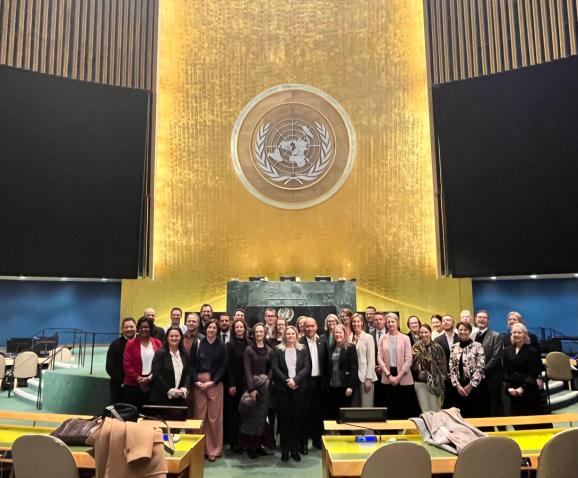In this Historia Oral de la CEPAL interview, Martine Dirven, former Head of the Agricultural Development Unit and later Chief of the Division of Productive and Business Development, reflects on two decades at the Economic Commission for Latin America and the Caribbean (ECLAC) devoted to rural development and cooperation.
From 1988 to 2009, she witnessed how informal exchanges and everyday encounters nurtured creativity and collaboration across the institution.
From New York to Santiago
Before arriving in Chile, Ms. Dirven had worked for seven years in the United Nations in New York.
What brought her to Santiago was, “a twist of fate.”
“I wanted to return to Europe, but someone in New York said, ‘There’s an opening in Santiago; why don’t you apply there?’ I never imagined I’d come. Two weeks later, they told me I was selected.”
Building a Unit, fostering conversation
When the CEPAL/FAO Joint Division split, Dirven helped steer what became the Agricultural Development Unit with smaller teams and fewer resources, but a sharpened sense of mission.
“We fell from twelve professionals to five. And with FAO carrying out the consultancy and travel budgets, we had to relearn how to ask, and why.”
She valued conversation as the glue of teamwork:
“When I became head of the Agricultural Unit, I replaced our weekly formal meeting with a morning coffee. It was more natural. We talked about films, work, life… and somehow ideas flowed better.”
Dirven remembers the old upstairs cafeteria as a crossroads where ideas and people met.
“That cafeteria was a place to meet everyone… It was transversal, enriching. We learned from each other’s work by sharing a table.”
After the 2010 earthquake, the cafeteria moved. For Dirven, the loss of that central meeting place still echoes.
“It was a mistake to move it. We lost a common site of encounter and with it, spontaneous collaboration.”
A message for the next generation
“Someone once asked [Jorge Katz] if, after such a long career, he had learned anything new at ECLAC. Jorge said yes — that what he found most enriching was talking with people from different areas and not being boxed into his specialization.”
“That,” she adds, “is one of ECLAC’s greatest strengths. You can truly get to know your colleagues, exchange ideas, and grow beyond your own discipline.”



